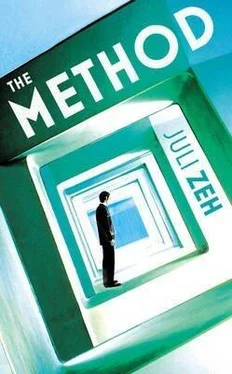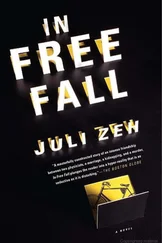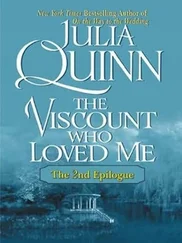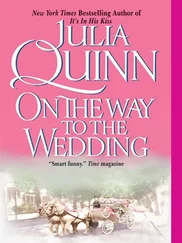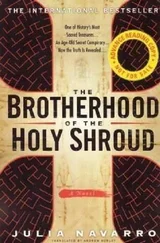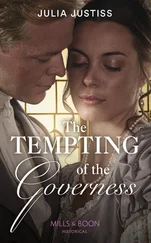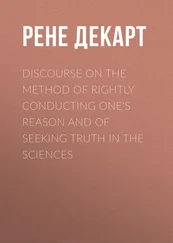Barker rises cumbersomely from his chair.
‘Santé, ladies and gentlemen.’ He knows the charges by heart, but he opens his file all the same. ‘The defendant is charged with anti-Method activities and with spearheading an anti-Method faction. She is further charged with repeated misuse of toxic substances in the first degree. The prosecution calls attention to the following facts. First, the defendant is known to have made verbal attacks on the Method in private and public. According to the court’s main witness, Heinrich Kramer, she expressly blames the Method for the death of her brother. The defendant has also made it perfectly clear that she rejects the authority of the state.’ Barker leafs through his file. ‘I quote: I want to be left alone … I can deal with the fallout from the incident without the intervention of the Method and its associated institutions .’
‘Thank you, Barker,’ interrupts Sophie. ‘The judge is sufficiently acquainted with the defendant’s utterances. She was there.’
‘Second, the defendant was apprehended in a location known to Method Defence as a meeting point for suspected PRI sympathisers. According to the arresting officers, she was smoking a cigarette.’
‘The defendant’s recidivist tendencies are also known to the judge,’ says Sophie with a cynicism that doesn’t suit her.
‘When asked to explain her presence at the aforementioned meeting point, the defendant stated she was meeting no one . The prosecution believes that No one is the code name of a PRI activist.’
‘Pure conjecture,’ says Rosentreter. ‘I assume this is the prosecution’s idea of a joke …?’
‘Be so kind as to wait your turn,’ says Sophie. ‘Next time you speak without permission, I’ll assume you wish to leave the court.’
‘The prosecution calls Heinrich Kramer to the stand,’ says Barker. ‘The prosecution also calls for the defendant to be interrogated about her political views.’
‘Agreed,’ says Sophie. ‘Herr Rosentreter, what does the defence recommend?’
‘An immediate suspension of the trial,’ says Rosentreter. ‘The matter should never have been brought to court.’
‘You still want to pursue your application for exemption?’ asks Sophie with almost amused astonishment.
‘As a matter of fact, we’re applying for the court to be recused on suspicion of bias.’
There is a murmur of excitement.
The judge looks at Rosentreter, who returns her gaze unflinchingly. She leans over to Hutschneider and Weber and a whispered debate ensues.
‘Declined,’ she says at last. ‘The trial will continue. I advise the private counsel to consider his client’s well-being and stick to the rules. Frau Holl, please rise for questioning.’
‘Go on,’ says Rosentreter to Mia, who has been listening to the proceedings with the bemusement of someone adrift in a foreign language. She stays seated until Rosentreter pokes her in the ribs; then she rises, rustles around the dock in her paper suit and sits at the little table in front of the judge’s lectern.
‘Do I have to take an oath?’ she asks.
‘You’re not entitled to take an oath,’ says Sophie. ‘Oaths are reserved for witnesses. In future, you might want to look for a lawyer who can brief you on basic legal procedures. In the event that … you’re arrested again.’
‘Frau Holl, we’d like to confirm a few personal details,’ says Barker.
‘I’m a scientist,’ says Mia, ‘not a terrorist.’
There is laughter from the public gallery; the judge restores order with a threatening gesture.
‘Come on, Frau Holl,’ says Barker. ‘It’s not like you to hold back with your opinions. This is your chance. What do you think of our political system?’
‘Science,’ says Mia, ‘broke up the long-standing marriage between humankind and the transcendental. The soul, progeny of this union, was given up for adoption. It left us with the body, which became our main concern. The body is temple and altar; our highest god, our greatest sacrifice; sacred and enslaved. Logically speaking, it was inevitable. Do you see what I mean?’
‘No,’ says Barker.
‘Absolutely,’ says Sophie. ‘Please go on.’
‘The sort of person who recognises the logical inevitability of a development is not the sort of person who swims against the tide. For such a person, swimming against the tide is pointless, futile. So you want to know what I think about anti-Method activities? The PRI? Revolution?’ Mia is becoming animated. She rolls up the sleeves of her paper overalls. ‘Revolution is when the many rise up against the few, the few being a handful of people who make the decisions at any one time. In all other respects, the few and the many are the same.’
She turns to Kramer as if her explanation were intended for him alone. He lifts his chin and signals for her to face the judge.
‘What would you think if you saw a pack of wolves attacking and killing its leader?’ she says. ‘You’d think it was natural, wouldn’t you? You’d think it was nature’s way of finding a new leader for the pack. It’s that simple! We can talk about revolution, power and oppression, politics, the Method, economics, private interest and the common good, we can use a thousand new words for describing matters that seem complicated and important, but it all comes down to one thing: a human arrangement. Since the gods are no longer in the picture, it’s irredeemably banal. A pack of wolves that get rid of their leader every few years.’
Barker shuffles in his seat. He looks like a loose collection of bones barely held together by his robe.
‘I’m not sure the defendant’s statement was intelligible to the court,’ he says.
‘On the contrary,’ says Sophie. ‘Frau Holl has made it clear that she can’t see the sense in revolution, since revolution is a conflict between two groups of humans, and humans, as the court would agree, are identical in worth. The judge accepts the statement as admissible evidence.’
‘Pardon me,’ says Hutschneider, ‘but in the same statement Frau Holl asserted that a pack, um, I mean, a society should replace its leader, or rather, its government every few years.’
‘The point is,’ says Mia, ‘I want nothing to do with it. My brother accused me of supporting the Method only because I despised humankind. He was probably right, but it doesn’t change the fact that I believe in the Method.’
‘If the defendant’s belief in the system is grounded in her contempt for humanity, it follows that she despises the state,’ says Hutschneider craftily, jabbing the air with his pen as he speaks.
‘Is this a courtroom or a debating club?’ asks Barker, running his fingers around his collar as if he were overheating.
‘First official caution,’ says Sophie.
‘The system teaches us to think rationally,’ says Mia. ‘Everything about me is rational. At school I was taught to approach every problem from at least two different sides. Logic splits everything into two opposing parts. At the end of the process, you get zero.’
‘Ha, now I see where she’s coming from,’ exclaims Barker. ‘Frau Holl is campaigning for freedom from consequences .’
‘Logic makes me sit on the fence. I’m forever in between. I can’t decide for or against: I’m not in the least bit dangerous.’
‘I suspect the opposite is the case,’ says Hutschneider darkly.
‘Frau Holl,’ says Sophie, and does something she has never done in court: she reaches back and unties her hair, ‘in our previous conversations we talked about the connection between personal well-being and the common good. Can you explain your views to the court?’
‘The state,’ says Mia obediently, ‘is there to serve humanity’s natural desire for life and happiness. Power is legitimate only in so far as it serves this goal. The state must unite the well-being of the individual and the whole.’
Читать дальше
